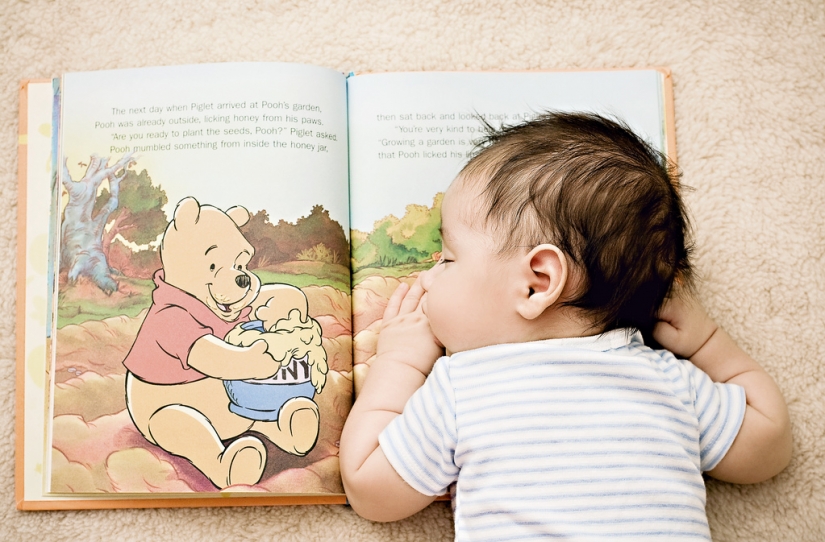8 scientific reasons why you should read books
Categories: Book | Entertainment | Habit | People | Psychology | Science | Society | World
By Vika https://pictolic.com/article/8-scientific-reasons-why-you-should-read-books.htmlWhen e-books hit the market, many prophesied a permanent "death" to printed books. Despite all the prophecies, traditional paper books remain as popular as ever, and scientists confirm their beneficial effects on the human body. Find out 8 scientific reasons why books are worth reading.
8 PHOTOS

1. Reading increases intelligence. As the popular children's book writer known as Dr. Seuss once wrote: The more you read, the more you learn. Reading is an all-encompassing source of knowledge and from an early age enriches our vocabulary much more effectively than watching television or talking to educated people. And an extensive vocabulary, according to scientists, makes it possible to better pass not only tests on reading comprehension but also on the level of intelligence. (Photo: imran * / flickr.com).

2. Reading increases the efficiency of the brain. Frequent reading affects not only the level of knowledge but also the efficiency of our brain. Regular reading improves the health of brain cells and helps us remember what we read faster. With age, our brains age, and reading books naturally can slow down this process - this is the conclusion reached by scientists who published their findings in the journal Neurology. And the Huffington Post writes in its pages that reading can reduce the risk of developing mental disorders by up to 32 percent. (Photo: Ryuu 竜 /flickr.com).

3. Reading teaches empathy (empathy). Reading fiction, the reader has the opportunity to imagine how the heroes of the book feel and better understand them, write scientists from Science. Scientists believe that fiction makes us more sensitive than reading nonfiction. Scientists David Comer Kidd and Emanuele Castano argue that understanding the state of mind of other people is the basis that a person needs to function normally in society. (Photo: Frank Crommelin / flickr.com).

4. Reading helps fight Alzheimer's disease. Reading a book is a kind of brain training that stimulates its work. People who constantly read have a two-and-a-half-fold lower risk of developing Alzheimer's than those who do not. The more active our brain is, the better its condition. And the book can be great to stimulate the activity of our brain. What really kills brain cells is passivity (inaction). (Photo: bonaphoto / flickr.com).

5. Reading books helps to relax. Scientific studies have shown that reading can act as a relaxation tool. Scientists at Sussex University have shown that reading reduces stress by up to 69 percent. It doesn't matter what book you read, the main thing is that it completely captures you. Getting into the world fictional by the author, we run away from the anxiety and everyday worries of our own lives, - writes David Lewis in The Telegraph. (Photo: - POD - / flickr.com).)

6. Reading helps you fall asleep. Reading traditional books allows the body to relax much better than, for example, reading from a computer screen or tablet, which keeps our brain in a state of concentration longer, which in turn negatively affects sleep. This rule also applies to children. According to Pediatrics, 45 percent of children who had a screen nearby before bed fell asleep on average 20 minutes longer than children who read paper books. (Photo: {Anita} /flickr.com).)

7. Reading is contagious. 75 percent of parents want their children to read more. It turns out that reading is contagious. Children whose parents constantly read books aloud to them, most often spend their free time reading. Research has shown that 40 percent of children aged 6 to 10 who love to read had their parents read books aloud in early childhood. Why is this happening? It turns out that children need to see reading as a potential hobby. (Photo: evaxebra / flickr.com).

8. Turning the pages of a book contributes to a better understanding of it. It is thanks to the flipping of pages that we better understand the contents of the book we are reading. The Wired report confirms that the touch of our hands to the pages of a book "introduces" its meaning (context) to our brain, thereby allowing us to better understand what we are reading. (Photo: Sareni / flickr.com).
Keywords: Science | Scientific | Books | Pdf | E-books | Reading | Paper | Effects | Benefits | Human | Human body | Mind | Brain | Reason | Society | People
Post News ArticleRecent articles

It's high time to admit that this whole hipster idea has gone too far. The concept has become so popular that even restaurants have ...

There is a perception that people only use 10% of their brain potential. But the heroes of our review, apparently, found a way to ...
Related articles

Have you heard of such a phenomenon as the doorway effect? Let's put it simply: have you ever walked into a room and immediately ...

There is nothing strange in the fact that certain images and concepts of fear are repeated in the horror genre. Themes of horror ...

The question of what space smells like may not be considered topical, but, you must agree, it would be interesting to find out. It ...

New Year's is a time to surprise and delight loved ones not only with gifts but also with a unique presentation of the holiday ...